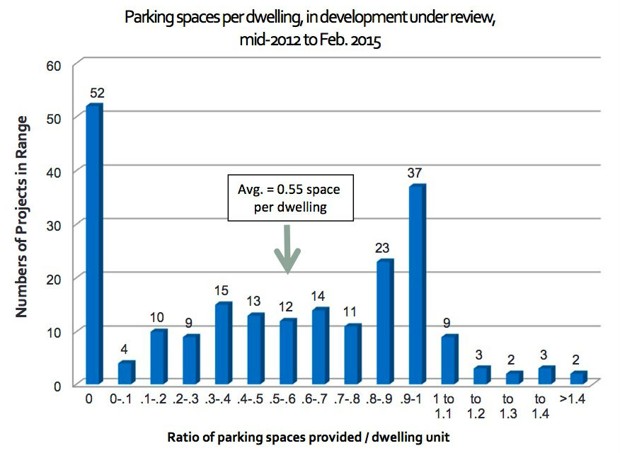After decades of telling residential developers to build a minimum amount of parking for tenants, smart cities are now looking for ways to discourage the creation of unnecessary spaces. That’s because while some people enjoy the amenity of a personal spot, residential parking also makes housing lessaffordable (by jacking up rents to defray the cost of building a garage or a lot) and makes traffic more awful (by encouraging commuters to drive to work). It's a small win for a large loss.
Seattle is among the U.S. metros working hard to change the situation. Years ago it eliminated a rule requiring developers to build parking for new buildings located in downtown or transit-friendly areas. That policy has produced mixed returns; some housing developments provide no parking for tenants, while some still build nearly a spot per person, leading to just over half a space per unit, on average:

No comments:
Post a Comment